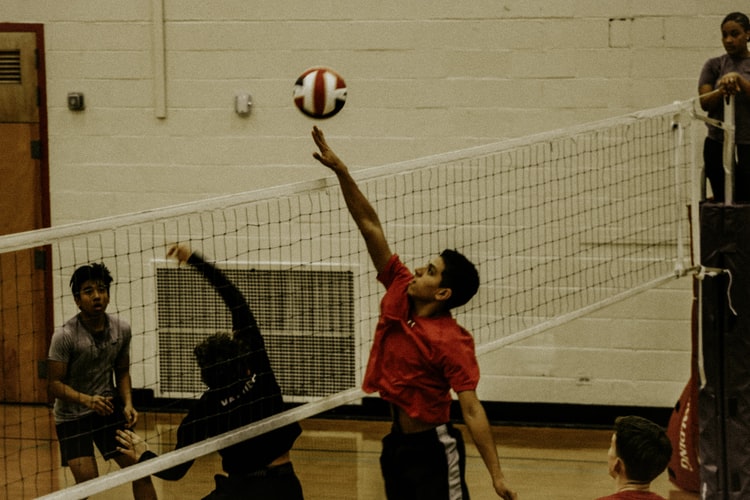The US and the UK both teach in English and are home to some of the best universities in the world — so you could be forgiven for thinking that their uni culture would be pretty similar, too. However, as someone who has studied in both, you can take it from me – they’re not. If you come to the UK expecting sport to be a big deal, or to the US expecting to find pubs, you’ll be in for a big shock. Here are five of the main ways university culture differs between the US and the UK.
Sport

Sport is an absolutely integral part of university life in the US. Fall semester is football season, where students, staff, and alumni will pack out huge stadiums every week to see their college football team play. The most successful student athletes often come to university on huge scholarships and are treated as campus celebrities. Many go on to pursue professional careers in their respective sport, as top-level college sport is taken very seriously.
Sport also plays a big role in social events – football games are often preceded by ‘tailgates’, and many students will attend parties or go to college bars afterwards – especially if their team wins! Going to the match is a social event within itself, and students will often make a huge effort to show support for their team.
However, uni sport in the UK is a whole different ball game (get it?). In the UK, lots of students participate in sport, but very few will go and watch. Sport societies also play a big role in a lot of students’ social lives, with most universities hosting an Athletics’ Union (AU) exclusive night out every week, so drinking and partying often go hand in hand with athletic activity – so I think it’s fair to say that peak performance is often not UK uni sports team’s priority. That’s not to say that you can’t take sport seriously in the UK – many uni teams do perform to a high standard – but if you’re planning on being an athlete, you might want to pick your team carefully, and you probably shouldn’t expect a big audience.
Fraternities and sororities
Fraternities and sororities are a huge part of college life in the US, but have no equivalent in the UK. They are essentially big groups of students that often live together, and participate in academic, philanthropic, and social activities together. Each fraternity and sorority is represented by greek letters (hence the name ‘greek life’). You can check out our full guide to greek life in the US here.
In both the US and the UK many students join societies, where they can participate in activities they are interested in with like-minded people. Whilst societies exist in both the UK and the US, I personally found them to be much more casual in the UK – working on the uni newspaper was a volunteer role in the UK but a paid job in the US, and as mentioned above, sports in America tend to be taken a lot more seriously.
Housing
In both the UK and the US, most new students (freshers, or freshmen), will move into university-provided halls or dorms. However, that is pretty much where the similarities end. Most dorms in the US will involve sharing a room with someone else, whereas in the UK that is very unusual – we like our privacy, okay? Most dorms in the US will also require you to have a meal plan at least for your freshman year, whereas in the UK there’s likely to be much more flexibility around whether you are catered or self-catered.
After first year, most uni students in the UK move out of halls and into student houses in the area. In the US, however, many students stay in dorms for most or all of their time at college, with some dorms being reserved specifically for upperclassmen.
Nightlife
This one is very much dependent on where you attend university, but broadly, nightlife in the US and the UK has some big differences. Because most US universities are in small college towns, students tend to pack out college bars at night, where everyone you meet will also be a student and the decor, drinks, and maybe even the bar’s name will centre around your university.
The legal drinking age in the US is 21, so for those in their first few years of college, most nightlife takes place at frat parties instead of bars. These are big parties held at fraternity houses, and are one of the most famous and unique parts of the American university experience.
In the UK the legal drinking age is 18, so most students can go out as soon as they arrive at university. British students tend to frequent clubs more often than bars, with those who attend uni in the city often having a huge range of clubs to choose from.
More important, however, is the extremely British institution of the pub, which doesn’t really exist in America. Pubs are usually places for casual drinking and socialising more than pre-drinks before a night out – if you don’t drink, chances are you’ll still spend a lot of your student life in the pub with a lemonade rather than a pint. Many students will have a local pub which they are fiercely loyal to, and some might even host fun events like karaoke nights!
School spirit
All students work hard to get into university, but the way they show their pride is different all over the world – and especially in the US and the UK.
In the US, wearing college branded clothing around campus is the norm, with campus shops usually stocking a huge variety of sweaters, joggers, t-shirts, bags, and even jewelry available to show your school spirit! Many shops in your college town will also show their spirit by displaying your college’s logo in their windows – and if you go to a state university, chances are you’ll see a lot of cars around your state with your school’s bumper sticker.
In the UK, however, very few students choose to wear their university’s branded clothing, opting instead for their own (sometimes unusual, often enviable) fashion choices. Students are certainly proud of their universities, but they are more reserved in the ways they show it, and school spirit doesn’t really exist in the same way that it does in the US.
By Cassandra
This content was found at https://edvoy.com/articles/5-differences-between-uni-culture-in-the-us-and-the-uk/






Recent Comments